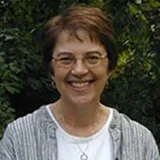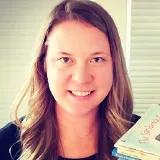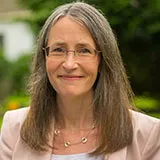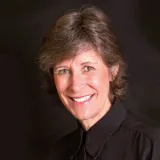Voyager Sopris Learning EDVIEW360 Podcast Series
Make it Stick: High Impact Routines and Practice in Phonics Instruction
When it comes to phonics instruction, our students need to be doing the hard work of learning. Leveraging high-impact routines and opportunities for practice can create a classroom climate that facilitates this hard work. Literacy expert Hannah Irion-Frake will walk you through the why and how of phonics instruction and show you how you can help your students master phonics concepts forever.
Join us for this informative and practical webinar to learn research-based phonics routines that will create consistent practice opportunities for your students.
Attendees will learn:
- High-impact, research-based phonics routines that are low-prep and easy to implement
- How to set up consistent instructional routines for phonics in an elementary classroom
- Key components of a phonics lesson, including direct instruction and student practice
- How to monitor student progress in response to phonics instruction
The Phonics Road Map
Join us for this fascinating and applicable presentation! Literacy expert and educator Amie Burkholder (@literacyedventures) will share what the research says about phonics instruction and five approaches to teaching it that you can implement it in practical ways within your own classrooms.
Phonics (and phonemic awareness) is the road to fluency and comprehension. Creating explicit and systematic instruction in this area is critical for all students to succeed and become fluent readers and writers.
Participants will walk away with a solid foundation of how to execute an explicit lesson and a tool kit of resources to get them started. All registrants who attend the live webinar will receive a free resource.
We hope you’ll join us!
Building Reading Skills in Grades 1–4: Strategic Reading Practice
When it comes to helping students learn to read even better, it takes a seasoned expert to provide insight and guidance on what really works. Susan Ebbers is that expert: she knows what it takes to help all students—struggling or not—become even better at reading, and this presentation will showcase her proven strategies and approaches.
Ebbers will focus on how to support emerging and advancing readers through various aspects of word structure, including phonetically regular words, irregular words, syllable and morpheme analysis.
Attendees will learn:
- How to achieve a reading progression from simple texts with basic words to more advanced and academic texts containing morphologically complex words with multiple syllables
- The importance of using a blend of narratives, riddles, poems, and informational texts for this age group
- How to use pre- and post-reading activities to boost literacy
- Methods for motivating struggling readers with decodable books designed for success
- And much more!
We hope you’ll join us.
(At Least) 10 Ways to Help Striving Adolescent Readers
While attention has increased for young readers who are striving, older readers—students in grades 5–12—need special attention to help gain the literacy skills that will serve them after their academic careers. Our expert teacher Jason DeHart has worked for much of his career with middle and high school students who struggle with reading, and he has some time-honored strategies and skills to share with other educators.
Join us for DeHart’s engaging presentation, which will focus on 10 ways to help the older reader who is still working through developmental skills. You’ll learn about new ideas and strategies, all of which are flexible enough to be adapted to meet a variety of student needs, and come from a teacher and researcher whose work has been centered around solving the mystery of how to help older readers further develop literacy.
You’ll leave this presentation with a new understanding of how to help older readers who struggle, specifically:
- How to simultaneously link comprehension and word work
- Key steps in thinking about how to build literacy engagement with readers across languages
- How to minimize background knowledge building and include more reading in instruction
- How to develop lessons around grammar and vocabulary in context so more reading practice can occur
- Ways to build a comfortable learning environment for the resisting reader
- Thoughtful steps to use visuals and graphic organizers not as replacements but enhancement for breaking down words
- Thoughtful ways to use curriculum and resources so teachers are not “reinventing the wheel”
- Information about the value of developing fluency with older readers, including specific strategies for this work and the role of phonics for older readers
- Ways to take what we know about younger readers and adapt this work for the adolescent/older reader

Success for Every Student: The Research Behind Direct Instruction
Direct Instruction (DI) is a highly structured method of teaching based on the assumption that all students can learn if given appropriate instruction. Decades of research shows this method of teaching can help change the stagnant levels of U.S. student achievement. Our expert will share these research results and describe DI’s potential to dramatically change patterns of student achievement in the United States
Hundreds of studies show how DI can promote outstanding gains in student achievement and self-confidence. Its positive impact is documented with students from many different backgrounds, in schools with vastly different characteristics, and when compared with all other types of curricula. The gains are both statistically and substantively significant and large enough to dramatically alter current patterns of student achievement. Join noted researcher and educator Dr. Jean Stockard as she describes evidence about DI’s effectiveness, why the programs were and continue to be so successful, why they are not utilized on a large scale in American schools, and most importantly, how they might be used in future years to dramatically reduce school failure and accelerate academic and social success.
If you’re a policymaker, administrator, or teacher, this presentation is for you! Dr. Stockard will share:
- The theory underlying DI, its development, use, and history
- Research from hundreds of different studies regarding DI’s effectiveness looking at students with varying characteristics, in different settings, and studying different areas
- Ways in which the systematic use of DI could alter patterns of student achievement
- What teachers, students, and concerned citizens could do to help bring this about

MTSS Myth Busting: The Truth About Tier 1
Join us for this enlightening presentation featuring our literacy expert who will do some myth busting about Tier 1 instruction. Learn the truth (and the research behind it) as we explore important facts related to Tier 1.
Do you know if these statements are myths or facts?
- Tier 1 instruction should be done only in a whole group format
- Classroom teachers are the only staff who can deliver Tier 1 instruction
- Students who score at benchmark on screening should receive Tier 1 instruction
- Students should come out of Tier 1 to get their Tier 2 intervention
- Eighty percent of students should reach benchmark goals with Tier 1 instruction only, no intervention
This session will shed light on common myths and provide actionable alternatives to common MTSS implementation mistakes and misunderstandings. By framing Tier 1 instruction as risk reduction, participants will learn how to improve reading outcomes for all students.
Dr. Stephanie Stollar will share:
- Definitions of each tier of instruction in the MTSS model
- Characteristics of effective Tier 1 instruction
- Strategies for aligning Tier 1 instruction to universal screening data
- Alternatives to common myths about Tier 1 instruction
The Path to Comprehension: The Connection Between Vocabulary and Background Knowledge
Background knowledge and vocabulary are essential components of good comprehension instruction. With some knowledge of a topic, students are set for comprehension success.
Join us for this applicable and instructive presentation as third-grade teacher Hannah Irion-Frake shares research-based strategies, activities, and personal experience from her own classroom to illustrate ways to include background knowledge and vocabulary in classroom instruction.
Attendees will learn:
- Research that supports the connection of vocabulary and background knowledge to comprehension
- Classroom strategies and activities to help your students build background knowledge
- Classroom routines and best practices for vocabulary instruction
Center Writing in Your Literacy Instruction to Move ALL Students Forward
Join us for this enlightening presentation exploring the most recent research about effective writing instruction—and what that means for literacy learning. Presenter Dr. Leslie Laud has led multimillion dollar federal research grants designed to find the lightest lift and highest yield approaches for raising not just writing outcomes but overall ELA proficiency.
Dr. Laud will share how prioritizing writing offers the greatest promise in improving the writing and reading skills of our students who struggle the most. She will explain recent findings while illustrating how educators can give writing additional attention in everyday lessons, drawing examples from districts that saw significant gains after using the approaches she will share.
Dr. Laud will discuss:
- High-impact strategies with the strongest evidence of effectiveness
- Tips for how to strengthen the impact of curricular materials you may already have in place
- Encouraging stories of success
- Ways to align writing instruction horizontally and vertically
- Methods that can be applied immediately
Key Ingredients of Social-Communication and Executive-Function Skills for Young Learners
How we communicate and interact with those around us depends on interconnected skills across the learning domains. Social-communication skills require executive function and oral language, which supports cognitive development and impacts social-emotional skills, and the acquisition of these skills in early childhood is critical.
How are the social interactions of the young students in your care? Early childhood providers have an important opportunity and responsibility to help young children develop these lifelong social-communication skills. This webinar will describe foundational skills needed to interact with those around us and share everyday routines and activities to help facilitate young children’s interaction skills leading to better learning opportunities.
Attendees will learn:
- What the foundational social-communication skills and executive-function skills are and how they impact learning
- Ways to enhance and model social-communication and executive-function skills
- Strategies early childhood providers can use and apply with young learners
Top 5 Things You Can Do to Improve Your Literacy Instruction
How can you help students improve their ability to understand complex text and their writing skills? Probably not in the ways you’ve been led to believe work best. The standard approach to reading comprehension has students practice skills and strategies like “making inferences” about texts on a random variety of topics. And writing is generally relegated to a separate block, with students writing about topics unrelated to the core curriculum. But evidence indicates what really boosts students’ literacy is to connect reading and writing. Plus, comprehension and writing instruction should be grounded in rich content. And all aspects of literacy need to connect—not just reading and writing, but also listening and speaking.
In this webinar, participants will learn:
- Why it’s important to read aloud to the whole class from a series of complex texts, staying on the same topic for at least two to three weeks—and how to find resources for those “text sets”
- How to ask questions that put content in the foreground rather than skills and strategies
- Why it’s crucial to organize classroom libraries by topic as well as reading level
- Why spending a lot of time on meaty social studies and science topics is the best way to boost reading comprehension
- How students’ comprehension improves when they write about what they’re learning and get explicit instruction in constructing sentences, paragraphs, and essays
Add your email here to sign up for EDVIEW360 blogs, webinars, and podcasts. We'll send you an email when new posts and episodes are published.







